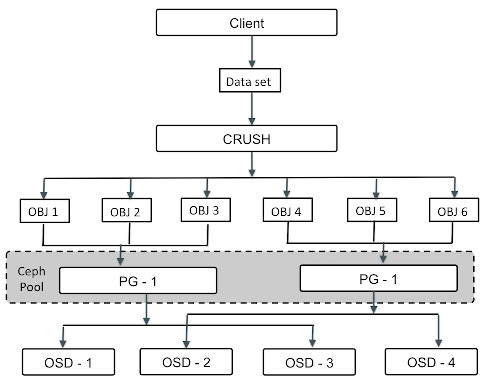A Placement Group (PG) is a logical collection of objects that are replicated on OSDs to provide reliability in a storage system. Depending on the replication level of a Ceph pool, each PG is replicated and distributed on more than one OSD of a Ceph cluster. You can consider a PG as a logical container holding multiple objects, such that this logical container is mapped to multiple OSDs:

The PGs are essential for the scalability and performance of a Ceph storage system. Without PGs, it will be difficult to manage and track tens of millions of objects that are replicated and spread over hundreds of OSDs. The management of these objects without a PG will also result in a computational penalty. Instead of managing every object individually, a system has to manage the PGs with numerous objects. This makes Ceph a more manageable and less complex system.
Each...


























































